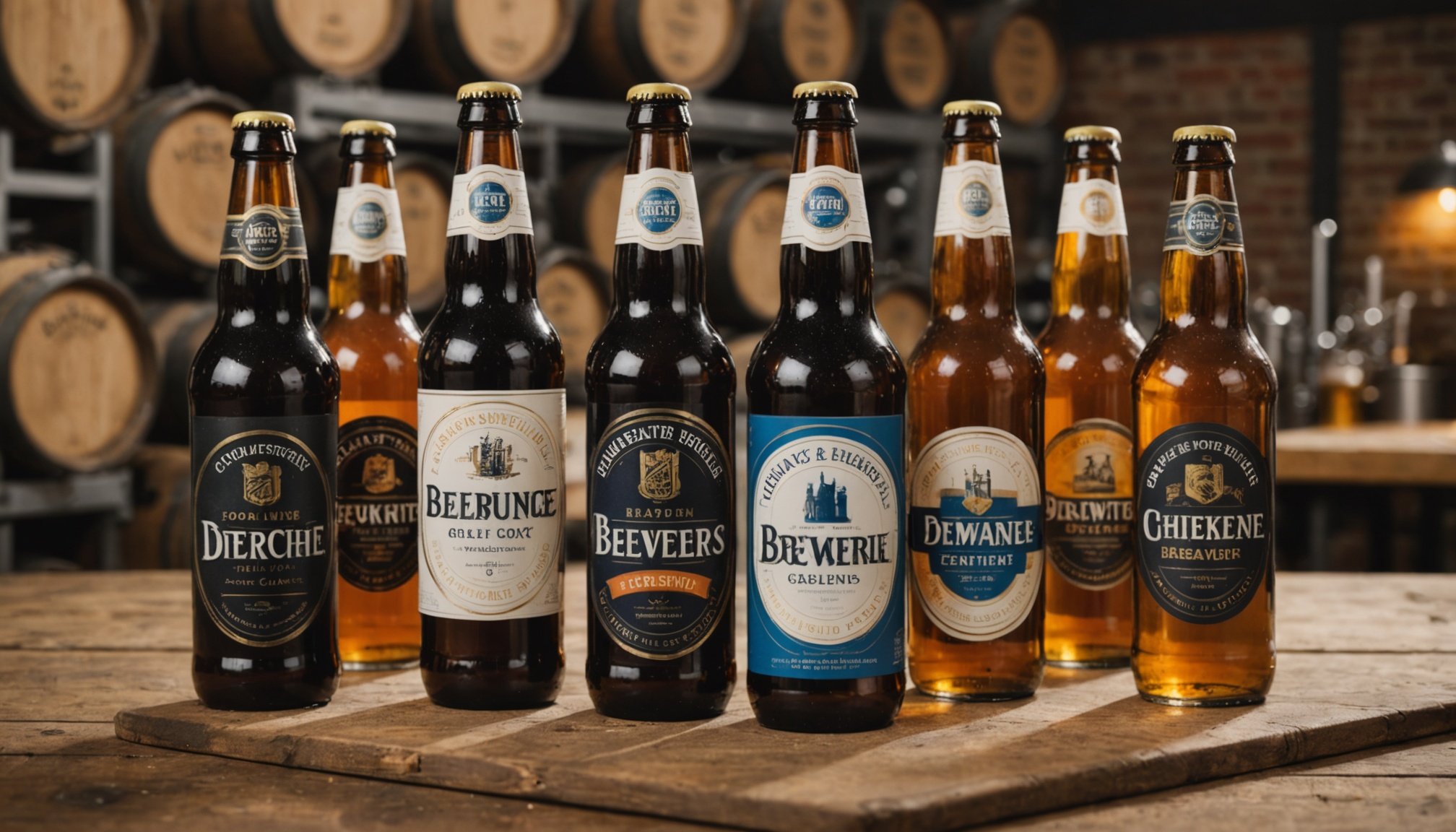Overview of UK Food and Beverage Labeling Regulations
Understanding UK labeling laws is crucial for any business in the food and beverage sector, particularly for craft breweries. These regulations ensure that consumers are provided with accurate and essential product information. They also protect public health by mandating transparency in product contents. The legal framework governing food and beverage labeling in the UK encompasses a range of directives and standards. These are designed to maintain consistency and reliability across all products while addressing specific industry needs.
Craft breweries, in particular, must adhere to strict craft brewery regulations when designing and implementing product labels. This includes incorporating all required information such as ingredients, allergens, and alcohol content. Adherence to these regulations not only showcases a commitment to labeling compliance but also enhances trust and reputation among consumers.
Also to see : Unlocking location freedom: your comprehensive handbook for uk film shoot permits
Non-compliance with these laws can lead to serious consequences, including fines, product recalls, and a damaged reputation. Thus, ensuring compliance is not merely a legal obligation but a business necessity. Proactively engaging with the nuances of these regulations can lead to smoother operations and a sounder relationship with consumers and regulatory bodies alike.
Essential Labeling Requirements for Craft Breweries
Craft breweries in the UK must adhere to specific labeling information protocols to ensure compliance with national laws. Mandatory content on product labels includes basic details such as the name and address of the manufacturer, the product’s name, volume, and alcohol content by volume (ABV). For alcoholic beverages such as craft beers, regulations expressly mandate the inclusion of precise ABV percentages and a declaration of any significant pipe changes, which must be readily visible to consumers.
Also to discover : Kickstarting Your UK Tech Venture: An All-Inclusive Handbook on Innovation and Government Funding
A common pitfall among breweries is neglecting to update labels following recipe alterations or production changes, potentially leading to non-compliant product labels. Additionally, oversight can occur when breweries fail to identify and communicate on their labels that there are specific ingredients known to contain allergens—a consequential oversight given the UK’s stringent allergen declaration requirements.
By paying close attention to product labels and ensuring adherence to all mandatory content criteria, breweries can avoid these labeling pitfalls. Maintaining compliance not only safeguards consumer safety but also fortifies a brewery’s market reputation. Regular review and understanding of current UK regulations, alongside proactive label auditing, can help craft breweries meet industry standards effectively.
Ingredient Declarations and Allergen Information
Adhering to ingredient labeling and allergen regulations is a crucial aspect of safety compliance for craft breweries. UK regulations mandate that all ingredients used must be listed clearly on the product packaging, enhancing consumer knowledge and safety. Importantly, allergens, when present, must be highlighted to draw attention.
The ingredient listings should include all components, ordered by weight. For allergens, the law requires bold text or an alternate distinguishable method on product labels to ensure consumers with allergies can easily identify potential risks. These stringent rules are implemented to protect consumers and are considered a cornerstone of safety compliance within the beverage industry.
A notable case study illustrating the importance of precise labeling is when BrewDog, a leading craft brewery, faced backlash for failing to appropriately highlight allergens. This incident underscores the importance of meticulous attention to detail in ingredient labeling. By focusing on accurate and visible information, breweries can avoid similar pitfalls and maintain consumer trust. Regular audits and keeping informed of any regulatory changes are advisable strategies to prevent errors and enhance compliance. Such proactive measures demonstrate a commitment to public safety.
Nutritional Information Guidelines
Embracing nutritional labeling in the craft beer industry can seem daunting, but it’s essential for brewery regulations compliance. The UK mandates that nutritional information must be transparently presented to inform consumers about the contents they consume. Generally, detailed health information includes calories, carbohydrates, sugar, and salt levels. This transparency enhances consumer trust and aligns with health-conscious market trends.
Calculating and presenting nutritional data involves precision. Breweries must conduct accurate nutrient analyses or use reliable databases tailored for such purposes. Once calculated, display the data in a clear, easy-to-read format on the packaging, usually as part of a standard nutritional table. This practice not only meets legal requirements but also assists consumers in making informed choices.
Several craft breweries have successfully integrated nutritional labeling into their branding. These innovators serve as models within the industry, proving that with diligence and the right resources, accurate nutritional transparency can coexist with creative product presentation. Consistent re-evaluation and adaptation of these practices ensure that breweries remain compliant with evolving regulations and consumer expectations. This advance in labeling is not only beneficial for compliance but also strengthens a brewery’s reputation in the health-focused sector.
Practical Steps for Compliance
Navigating the complexities of UK food and beverage labeling regulations requires a clear compliance checklist. A well-organised labeling process ensures that craft breweries meet all legal requirements, protecting both consumer safety and their own market standing.
Step-by-Step Guide
-
Identify Mandatory Requirements: Familiarise yourself with all necessary details to be included on beer labels, such as ingredients, allergens, ABV, and nutritional information.
-
Design and Layout: Develop labels that not only meet regulatory standards but also communicate your brand’s identity. Remember, readability is key.
-
Utilise Brewery Resources: Employ resources such as government guidelines and industry experts, who can offer insights and tools to streamline the labeling process. Software solutions can aid in managing compliance documentation efficiently.
-
Regular Audits and Updates: Establish a routine for label reviews, especially when recipes change or new regulatory updates are issued. This ensures compliance and minimizes the risk of fines or recalls.
Adhering to these practical steps, craft breweries can confidently navigate the nuanced labeling process, harnessing tools and resources effectively. Regularly consulting a compliance checklist and staying informed on regulatory updates fortifies their position within the competitive market.
Common Pitfalls and Best Practices
Navigating the intricate landscape of UK food and beverage labeling can be challenging. Craft breweries often face common labeling mistakes, such as neglecting to update product labels with every recipe or formulation change. Omissions in ingredient listings or failure to highlight allergens can lead to significant non-compliance penalties.
To prevent these issues, breweries can adopt several best practices. Establishing a thorough understanding of regulatory updates is essential. Craft breweries should regularly consult updated guidelines to ensure their labeling remains compliant. It is equally important to maintain a robust internal process for labeling, which includes routine checks and audits.
Another effective strategy is utilizing tools and resources designed for label management. Engaging with expert consultants or attending industry workshops can provide invaluable insights. Strategies for ensuring ongoing compliance also include conducting regular training sessions for staff, fostering an environment focused on accuracy and entitlement adherence.
By embedding these practices into their operations, craft breweries can maintain positive relationships with both consumers and regulatory bodies. A proactive approach not only mitigates risk but also solidifies a brewery’s reputation as a reliable and responsible enterprise within the competitive market.











